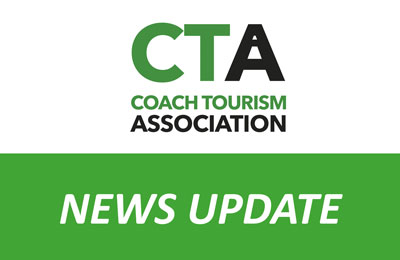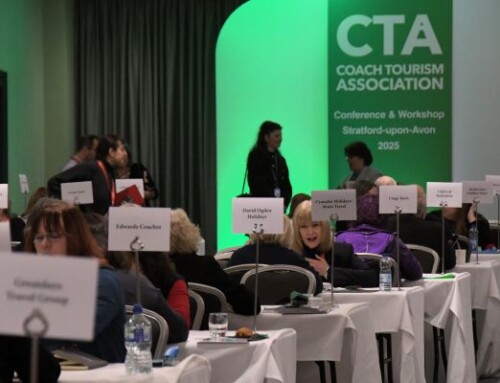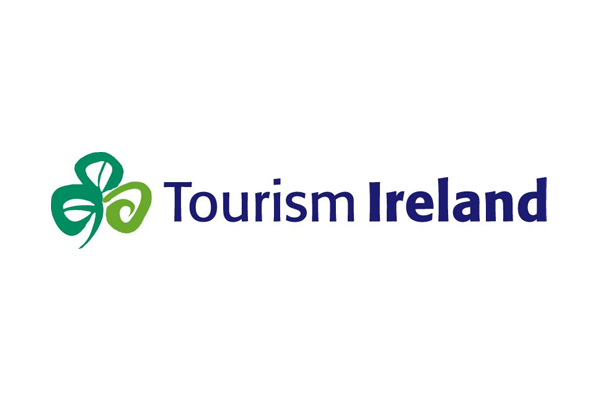COVID-19 Updates – week commencing 17/08/20
More updates of developments from the government and various links to interpretation and guidance.
Go to date:
17 August 2020 …
CPT operational update:
The Foreign and Commonwealth Office (FCO) has advised that France has been removed from the list of countries exempt from quarantine regulations when returning from there to the UK, effective 04.00, Saturday 15 August 2020. It is also advising against all but essential travel to France. This is based on the current assessment of COVID-19 risks.
The FCO is not advising those already travelling in France to leave at this time, however if you are returning to the UK from France on or after Saturday 15 August, you may need to self-isolate on your return, the requirements for this differ depending where your ultimate destination in the UK is and you should check the latest guidance for England, Northern Ireland, Scotland and Wales.
Transit Journeys
Transit journeys through France may also require all those on board to self-isolate when they arrive in England, even if they are travelling from a country which is still on the exempt list (Germany for instance), if:
• New passengers get on the coach
• Those on board the coach get off at any point and mix with other people, then get on again – at an overnight stay or a comfort break in a service area for instance.
There is no need to self-isolate beyond normal timescales if the trip through the non-exempt country is non-stop, or if:
• No new passengers get on
• No-one on-board gets off and mixes with people outside.
• Passengers get off but do not get back on
France – Travel advice: Quarantine restrictions for returning travellers
19 August 2020 …
CPT operational update:
CORONAVIRUS JOB RETENTION SCHEME FROM 1 SEPTEMBER 2020
This update covers the upcoming changes to the Coronavirus Job Retention Scheme (CJRS) from 1 September and what this means for employers
From 1 September the CJRS will reduce to only pay 70% of the usual wages (up to a cap of £2,187.50 per month) for the hours a furloughed employee does not work
Employees will still be entitled to be paid at least 80% of their usual wages for the hours they do not work, up to the cap of £2,500 per month
Employers will therefore be required to fund the difference between this and the reduced CJRS grant received
Employers cannot pay any employee that they are claiming for through CJRS, less than 80% of their usual wages for the hours they do not work, up to the cap
The wage caps are proportional to the hours that are not worked
As an example, where an employee is furloughed for half of their usual hours in September, they are entitled to be paid 80% of their usual wages up to £1,250 (50% of the £2,500 cap), whereas the employer can reclaim 70% of their usual wages for the hours they do not work up to £1,093.75 (50% of the £2,187.50 cap)
Employers will also have to continue paying the Employers National Insurance (ENIC) and statutory pension contributions based on the full amount of furlough pay the employee receives
CJRS HELP & SUPPORT
HMRC advise that they are still receiving very high demand on their phone lines and webchat from employers seeking help and support
Further guidance and live webinars offering further support on changes to the scheme are available to book online – go to GOV.UK and search ‘help and support if your business is affected by coronavirus’
DOMESTIC HOURS RULES – REGULATION (EU) 2020/1054
There are a number of changes to EU Drivers’ Hours and associated tachograph rules which will come into force on 20 August 2020
The new rules contained in Regulation (EU) 2020/1054 amend Regulation (EC) No 561/2006
The regulation also covers certain control procedures that cover journeys exempt from the EU Drivers’ Hours rules, specifically vehicles used for the carriage of passengers on regular services where the route covered does not exceed 50 kilometres
Article 16 of (EC) 561/2006 has been amended to say that each driver assigned to a service operating under national (domestic) rules must carry an extract from the duty roster and a copy of the service timetable(s) for the route(s) being operated
The duty roster must show the place where he is based and the schedule laid down in advance for periods of driving, other work, breaks and availability
Previously the duty roster had to cover a minimum of the previous 28 days, and be updated at regular intervals
Regulation (EU) 2020/1054 amends this paragraph, and now the duty roster carried by the driver must cover the previous 56 days
The full details of the new regulation can be found on the link below
CHANGES TO EU DRIVERS’ HOURS RULES – REGULATION (EU) 2020/1054
There are a number of changes to EU Drivers’ Hours and associated tachograph rules which will come into force on 20 August 2020
The new rules contained in Regulation (EU) 2020/1054 amend Regulation (EC) No 561/2006
The main changes that will impact the PSV sector include:
- an updated requirement to maintain a complete record of all other work
- a new definition of ‘non-commercial carriage’
- confirmation that whilst multi-manning a driver can take a 45 minute break on board the moving vehicle providing the are not engaged in any other work or assist in driving the vehicle
- a requirement for drivers’ to ‘return home’ every 4 weeks
- a complete ban on taking a regular weekly rest period in a vehicle
- new provisions for rests and breaks for drivers when journeys involve transport by ferry or by rail
- changes to the derogation that allows a driver to exceed driving time limits in exceptional circumstances
The detailed EU regulation can be found on the link below
We would recommend that Transport Managers and other staff with Operational Management responsibilities review the changes in order to maintain compliance, and that these changes are also communicated to those drivers affected
Key Changes
REGULATION (EU) 2020/1054
The Key amendments to Regulation (EC) No 561/2006 are as follows;
Article 4
A new definition of ‘non-commercial carriage’ has been added
(r) ‘non-commercial carriage’ means any carriage by road, other than carriage for hire or reward or on own account, for which no direct or indirect remuneration is received and which does not directly or indirectly generate any income for the driver of the vehicle or for others, and which is not linked to professional or
commercial activity
Article 6
Paragraph 5 has been amended to update the specific requirement to keep a full record of all other work undertaken.
This includes any time spent driving a vehicle as part of a commercial operation that out of scope of the regulations, and all periods of availability as defined in article 2 (b) of Directive 2002/15/EC
It should be remembered that there is already a requirement to record all other work, all breaks and all periods of rest.
The full record required can be kept either by making manual entries on a tachograph, or by use of manual record sheets
Article 7
In article 7, which is the requirement to take a break of 45 minutes after a driving period of 4 1/2 hours, there is a new paragraph added which confirms that where a driver is engaged in multi-manning he/she may take a break of 45 minutes in a vehicle driven by another driver provided that they are not involved in assisting the driver driving the vehicle
Article 8
This article covers daily and weekly rest periods
Paragraph 8 previously allowed a reduced weekly rest period to be taken in a stationary vehicle with suitable sleeping accommodation
This paragraph has been changed to say that ‘regular weekly rest periods and any weekly rest period of more than 45 hours taken in compensation for previous reduced weekly rest periods cannot be taken in a vehicle. They should be taken in suitable gender friendly accommodation with adequate sleeping and sanitary facilities
It also adds that any costs for accommodation outside the vehicle must be covered by the employer
There is also a further paragraph added (8a) which requires the operator to arrange drivers’ duties in a way as to allow them to return to their operating base or to their place of residence within every 4 week period (i.e. at least every 4 weeks)
While these changes will have more of an impact on the Haulage sector, they could potentially impact some PSV operators
However, within article 8 a further paragraph has been added (10) which includes a commitment to evaluate and report back to the EU Parliament on whether rules more appropriate to the transport of passengers on occasional services can be adopted, by August 2022 at the latest
Article 9
This article includes the derogation that allows for ‘Ferry Rest’ and also includes the rules to be followed when travelling to a location to take charge of a vehicle
There is an amendment to paragraph 1 so that a reduced weekly rest period can also be interrupted not more than twice by other activities not exceeding one hour in total. However when it is a reduced weekly rest that is interrupted the Ferry or Train journey must be of at least 8 hours, and the driver must have access to a sleeper cabin
Where only the daily rest period is interrupted the journey can be of any length and the requirement remains to have access to a bunk or couchette, and the requirement now also includes ‘sleeper cabin’
The same change has been made to paragraph 2 which covers where a driver undertaking a journey to take charge of a vehicle, or returning having handed over charge of a vehicle, (when the vehicle is neither at the driver’s home nor at the employer’s operating centre) which cannot be counted as rest or break unless the driver is travelling on a train or ferry and has access to a bunk or couchette, and the requirement now also includes ‘sleeper cabin’
Article 12
This article covers exceptional circumstances where a driver may exceed driving time to reach a suitable stopping place
This derogation has been extended to allow a driver to exceed their daily or weekly driving time limit, or not begin a daily rest period within 24 hours of starting their previous daily rest period, by up to one hour in order to reach their operating base or home address in order to start a weekly rest period
In addition, the driver may otherwise exceed the daily and weekly driving time by up to two hours, provided that an uninterrupted break of 30 minutes was taken immediately prior to the additional driving
There is a requirement added to say that any extension of the driving time shall be compensated by an equivalent period of rest taken en bloc with any rest period, by the end of the third week following the week in question.
DOMESTIC HOURS RULES – REGULATION (EU) 2020/1054
Members should note that the change we updated yesterday (18 August) concerning the carrying of records covering the previous 56 days does not come into effect until 31 December 2024
This date coincides with the date where Digital Tachograph cards must also be capable of holding a minimum of 56 days of data
All the other changes to Drivers’ Hours rules contained in the new EU regulation come into force on 20 August 2020
We apologise for any confusion caused
Tourism Alliance updates:
Reopen Your Business Update
The Government’s online tool to help businesses to undertake risk assessments and make adjustments to the premises and work practices has been updated to reflect the reopening of some businesses and the relaxation of some rules over the weekend. This is a very useful for businesses in providing guidance that is tailored to their particular circumstances.
https://www.gov.uk/coronavirus-business-reopening
Similarly, the online tool for finding out what support is available for your businesses has also been updated to reflect recent changes
https://www.gov.uk/business-coronavirus-support-finder
Leicester Lockdown Update
The Government has announced that certain tourism-related businesses or facilities will be able to legally reopen tomorrow including spas, beauty treatments and outdoor swimming pools. In addition, the guidance that recommends that music venues and theatres stay closed will also be removed. However, the current rules for gatherings in private homes and gardens will remain in place until the next review and the easing of restrictions that took place on 15 August in England will not apply in Leicester.
https://www.gov.uk/government/news/nail-bars-salons-and-some-outdoor-venues-to-reopen-in-leicester
Calculating Flexible Furlough Claims
HMRC have updated it’s guidance on how to businesses can claim for employees on flexible furlough by providing examples of how to calculate claims in Sept and Oct when businesses are required to make a contribution to the wage costs.
Guidance on Quarantining and Employment Rights
The Government has updated the guidance for people required to self-isolate on returning to the UK to include a link to employees rights of people who are not able to travel in to work as a result of changes to the rules while they were on holiday.
Here is the guidance on quarantining when returning to the UK
And here’s the guidance on employment rights
https://www.gov.uk/guidance/self-isolating-after-returning-to-the-uk-your-employment-rights
PUBLIC SERVICE ACCESSIBILITY REGULATIONS 2000 – SPECIAL AUTHORISATIONS
On 31 July we updated members about the letter CPT received from the Minister of State for Transport, Chris Heaton-Harris MP containing details of a new exemption for closed door home to school services
We have been asked by the Department to remind members of the process that should be followed to obtain a new exemption certificate
Members should remember that if they had certificates that expired on 31 July 2020, they will need to confirm to the department that they require new certificates in order to continue to operate non-PSVAR compliant vehicles on services charging separate fares
If you previously had an exemption certificate that expired on 31 July and you have not been contacted by the Department you should contact them using the method shown below in order to receive a new exemption
New exemption certificates will not be automatically issued unless the operator confirms to the Department that they are needed
PSVAR SPECIAL AUTHORISATIONS – APPLICATION AND ISSUE OF CERTIFICATES
Operators that previously applied for and received an exemption certificate that will expire on 31 July 2020 will be contacted by the Department and asked if they wish to apply for the new exemption.
In these cases operators will not be required to complete a further application and new certificates will be issued using the information previously supplied
If an operator previously had certificates and has not yet received an email from the Department asking to confirm that new certificates are needed, they should contact the Department using HomeToSchoolExemptions@dft.gov.uk with the subject line “HTS3 Application Form Request”
Operators which have not previously applied for an exemption for home to school services should send an email to HomeToSchoolExemptions@dft.gov.uk with “Exemption 3 Application Form Request” in the subject line. Full details of the application process will then be provided
General enquiries regarding the new exemptions should be sent to HomeToSchoolExemptions@dft.gov.uk with “Exemption 3 Enquiry” and an indication of the question in the subject line
Operators that have applied for the new exemption and also meet any eligibility criteria, will be issued with an exemption certificate.
A copy of the certificate should be carried onboard the vehicle when it is undertaking a HTS service covered by the exemption, and it must be made available to DVSA Vehicle Examiners or other relevant officers requesting it.
20 August 2020 …
Tourism Alliance updates:
Updated Guidance on Businesses That Can Open and Where Facemasks Are Required
The overall guidance on which businesses and facilities that can open, including any restrictions on their operation, has been updated to take account of the reopenings last weekend and the changes on where people are required to wear facemasks. Among all the published guidance, this is one of the most useful when fielding questions on what is allowed and what isn’t.
Safe Spectators
DCMS has revised all the guidance on the phased return on recreation and sport and added new guidance on the how spectators can return to watching elite sport. The guidance provides a set of minimum standards to progress from the current Stage Four: Return to Cross Border Competition – No Spectators to Stage Five: Return to Competition – Safe Return of Spectators. It should be noted that this is draft guidance to cover trial events and will be finalised on the basis of the results of those trials.
Transport Use
DfT have published the weekly transport figures which, as previously, show that private vehicle use and commercial vehicle use are practically back to normal. However, the use of public transport remains low and rail use even seems to be declining – from a peak at the beginning of the month of 34% to just 23% this week. Meanwhile tube and bus travel has remained static over the last month at between 30-50% which suggests that confidence in using public transport remains low and many people are still not communing to work.
https://www.gov.uk/government/statistics/transport-use-during-the-coronavirus-covid-19-pandemic
Check if Simplified Expenses Could Save Your Business Money
This is not strictly coronavirus related but helpful for sole traders or business partnerships that want to cut costs at the moment. BEIS has updated its online tool for these businesses to assess whether transferring to the Simplified Expenses scheme could save them money.
https://www.gov.uk/simplified-expenses-checker
Keeping Track of Local Spikes in Coronavirus
You may have noticed on the news today that Birmingham may be added to the Government’s Coronavirus watchlist as an “Area of Concern”. If you are unsure what this means, here’s a quick explainer:
Public Health England publish a weekly National Surveillance Report which pulls together all the information on Coronavirus cases across the country. From this they develop a Watchlist by considering the local authorities with the highest weekly incidence rate, the trend in this rate, and a range of other indicators including the test positivity rate, an assessment of the local response and plans, and healthcare activity.
There is a three stage classification given to areas added to the watchlist:
- Areas of concern
This is where cases are increasing and local targeted actions are needed to reduce prevalence e.g. additional testing in care homes and increased community engagement with high risk groups
- Areas for enhanced support
If local targeted actions don’t succeed, areas move on to Enhanced Support where a more detailed plan agreed with the national team is implemented, with additional resources being provided to support the local team (e.g. epidemiological expertise, additional mobile testing capacity)
- Areas of intervention
If the enhanced support fails to bring the outbreak under control, a further detailed action plan is implemented which includes changes to the rules on social distancing and business operations.
So by keeping an eye on the weekly National Surveillance Reports, you can see the trends in watchlist areas and let members know where they might expect restrictions to occur or be removed. Here’s a link to last the latest Report
https://www.gov.uk/government/publications/national-covid-19-surveillance-reports
Further ONS Data
ONs has produced another report on economic and social trends which has some interesting data including
-
- Footfall across all retail locations is rose 68% of what it was last year, despite the need to wear face masks in most shops
- 95% of businesses in the UK are now open
- Only 12% of the workforce is now on furlough
- 57% of businesses reported that their turnover had decreased below what is normally expected for this time of year
- Only 11% of businesses said that they faced a moderate or severe risk of insolvency
HMRC CJRS Repayment Phoneline and Videos
HMRC have implemented a new phone service for businesses that want to make a voluntary repayment of any money that has been overpaid through the Coronavirus Job Retention Scheme and where the company is not submitting anther claim. The number is 0300 322 9430
HMRC have also updated their Self-Employment Income Support Scheme videos for claiming the second grant and for Universal Credit and Child Benefit.
https://www.gov.uk/guidance/help-and-support-if-your-business-is-affected-by-coronavirus-covid-19
CPT operations update:
ANNUAL TESTING – EXEMPTIONS
Following the regular weekly meeting held today between DVSA, CPT and other stakeholders we can update members on some important details regarding the processing of Annual Test exemptions
We have previously informed members who are eligible for 12 month exemptions that they should ensure that all their vehicles are shown against the appropriate O licence on the Vehicle Operator Licensing (VOL) database
We have now been advised by DVSA that in order for the agency to gain access to these records, the operator must have indicated through their VOL account that these records can be shared
Therefore it is important that operators ensure that they have placed a tick in the relevant box on their VOL account
Until this is done, DVSA cannot access the records and will not be able to process exemptions
CPT were also advised at the meeting, that DVSA will update vehicle records for August first, before moving on to later months
Therefore members should be aware that for vehicles that have an annual test expiry in September and onwards, the vehicle record may not show the 12 month exemption immediately
Further meetings are scheduled for the coming weeks, and we will continue to update members of any new information or other developments










